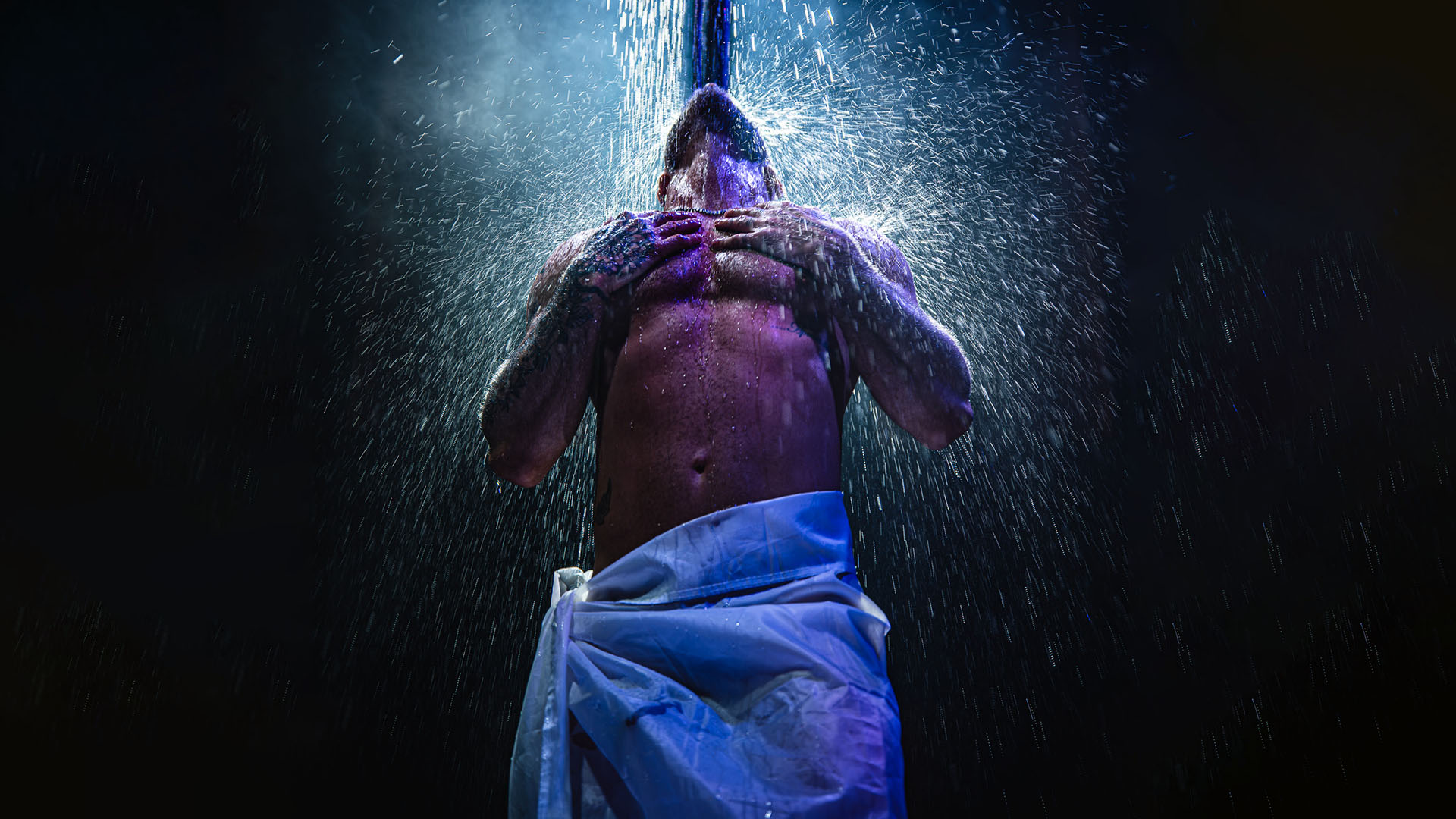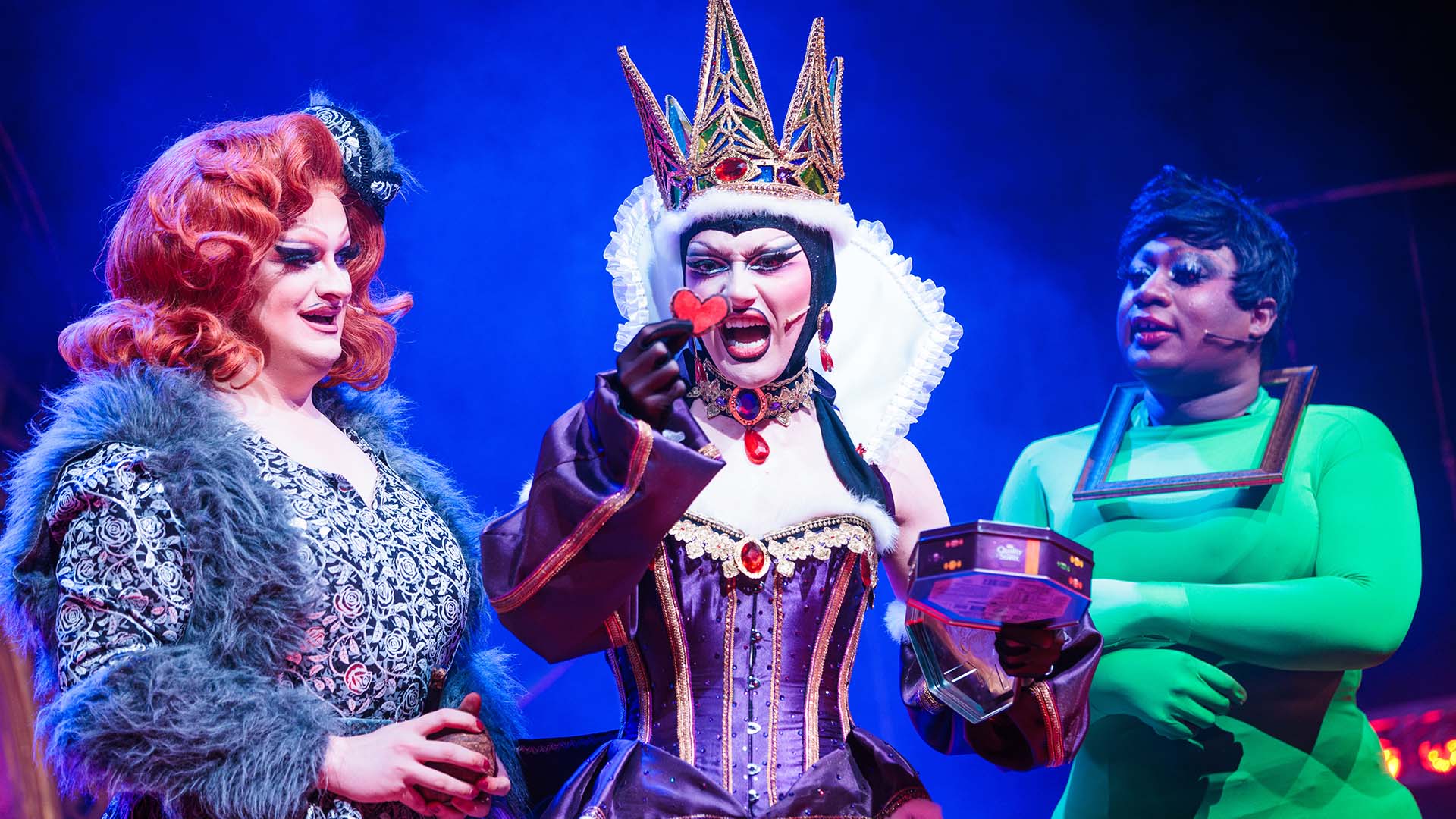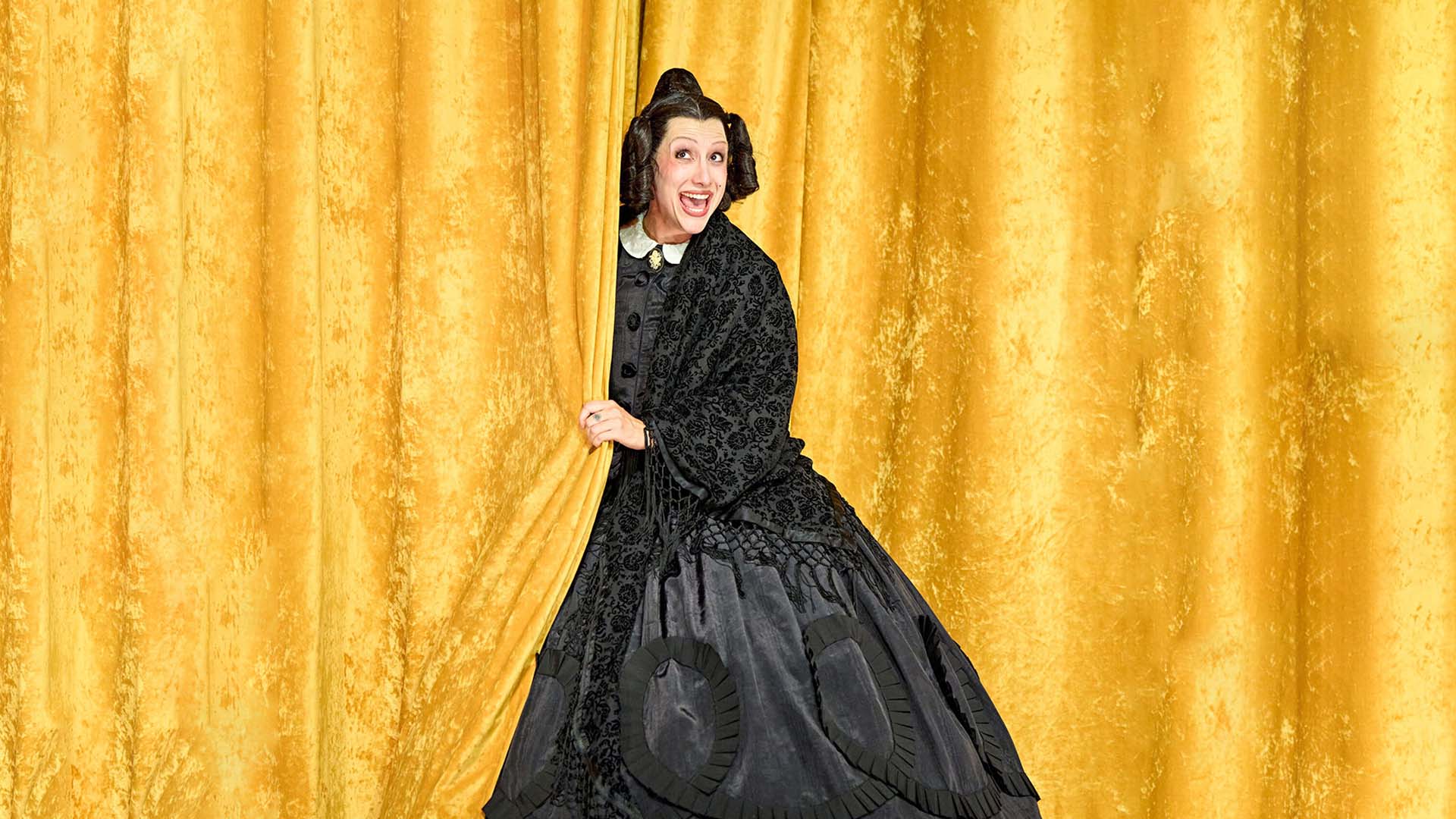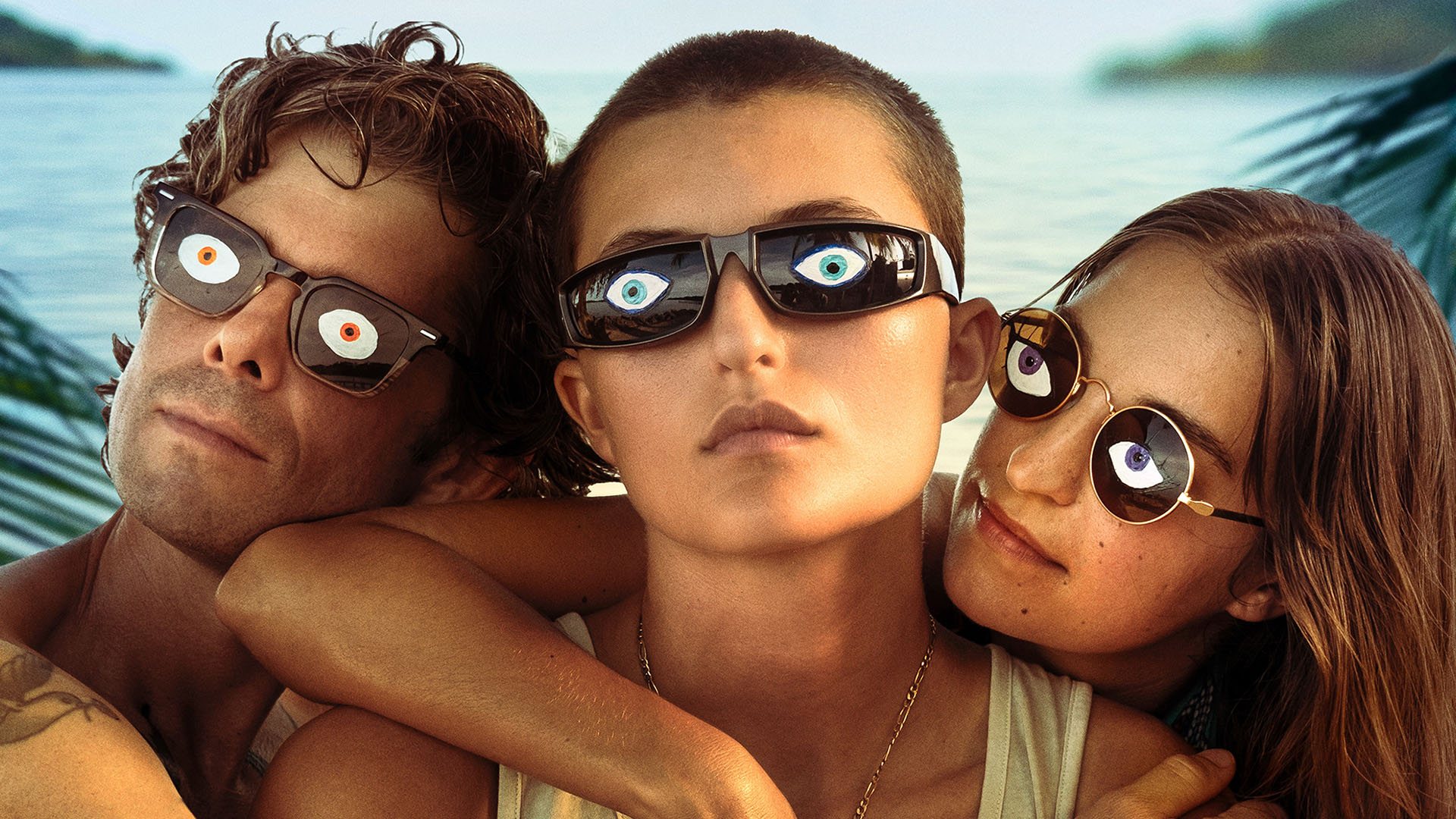Mark Ashton Talks Drag, Faith, and Camp Fruit
Mark Ashton shares stories, satire, and real talk from London’s drag scene, blending glamour with care in the first episode of Queer Spotlight.
Mark Ashton Talks Drag, Faith, and Camp Fruit

A conversation about care, cabaret, and carrying the community forward
This article is based on a recorded podcast interview for Queer Spotlight, a new filmed talk show by LEXME.RED celebrating queer voices across art, nightlife, activism, and identity. This episode, hosted by Dramala Tina and featuring guest Mark Ashton (Matron), was originally released on 6 July 2025.
Step into any corner of London’s queer nightlife, and chances are you’ve felt the echo of someone like Matron. Not just a performer, but a caretaker, a critic, a spark. Behind the lashes and laughter is Mark Ashton, a South African-born artist whose journey to becoming Matron is stitched with sharp wit, deep care, and a belief in drag as both celebration and resistance.
In this intimate recorded conversation hosted by podcast presenter Dramala Tina on the very first episode of Queer Spotlight, Mark opens up with humour and heart. What follows is a written reflection on their talk, drawn from Matron’s lived experience and fierce dedication to queer care.
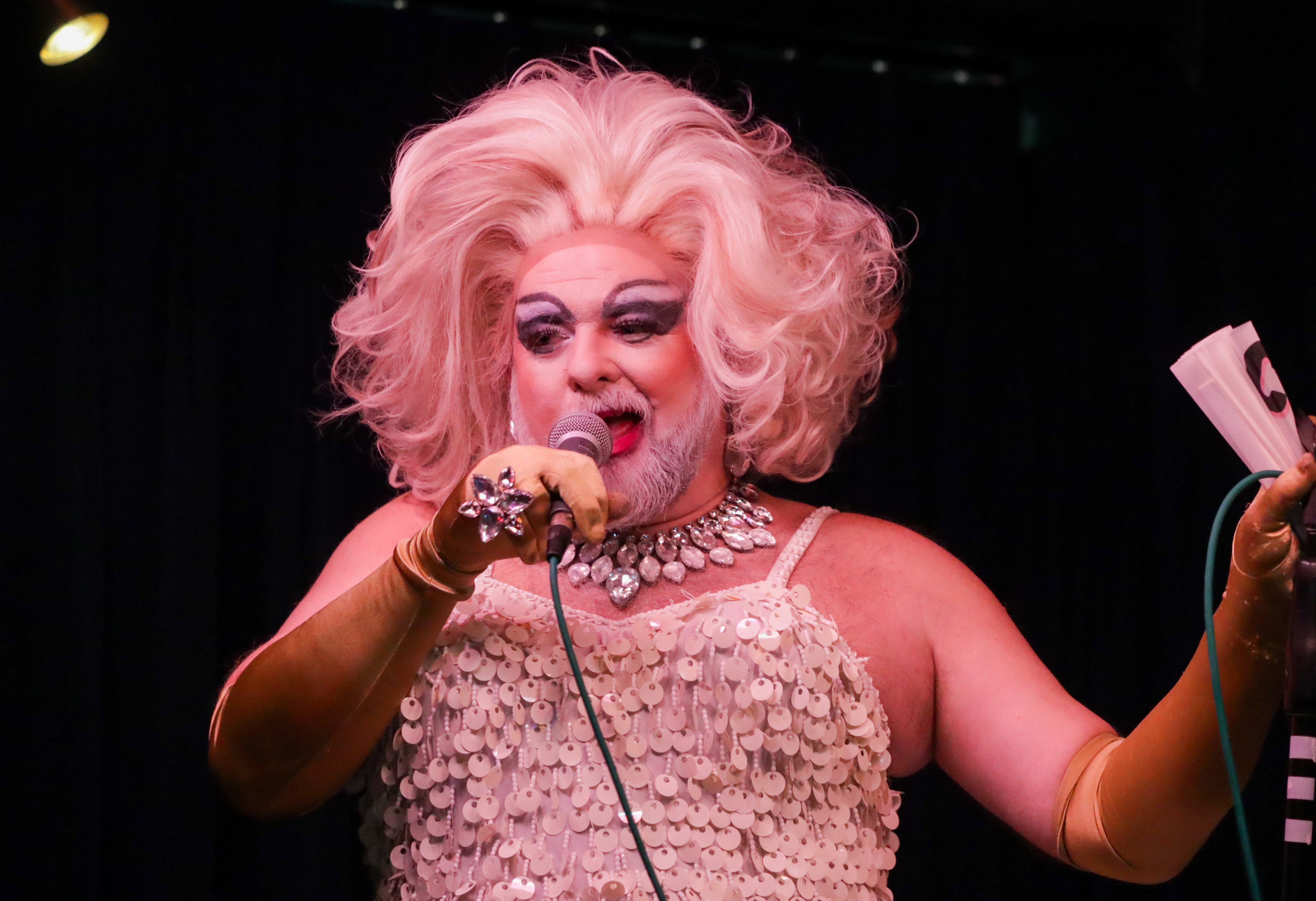
“Matron was given to me”
The name wasn’t self-declared. “I was looking after the boys at work,” Mark says, remembering his early years working in LGBTQ+ workplace diversity. “I was too young to be called mother. But they decided to call me Matron.” The name stuck long before the wig did. When drag entered the picture, the identity already had roots. “I still enjoy looking after people,” he says. “That hasn’t changed.”
Camp Fruit and cabaret that feels
When lockdown changed how people connected, Mark saw a gap. Nightlife was loud. Drag was everywhere. But sometimes, it wasn’t landing. “The audience had forgotten how to behave,” he laughs. “I wanted to bring back that feeling where people sat down and paid attention to a real show.”
Camp Fruit was born. Not just a drag night, but a cabaret space built around storytelling and emotional connection. “I want my audience to laugh, to cry, to feel something. And I want the queens to have the space to tell their story.”
Inspired by the dinner theatre vibes of early London gay bars, Camp Fruit is part nostalgia, part blueprint. A place for trained, talented performers to shine in full colour. “A lot of the queens I work with have degrees in musical theatre,” Mark says. “They’re not just boys in dresses. They’re artists.”
The show must go on
Mark isn’t short of backstage stories. One of his favourites happened early in Camp Fruit’s run.
“Wilma Ballsdrop was doing a number and did one of her high kicks, sent the feedback speaker flying into the audience. You’ve never seen a sound technician move so fast. We just burst out laughing. That didn’t happen in rehearsal!”
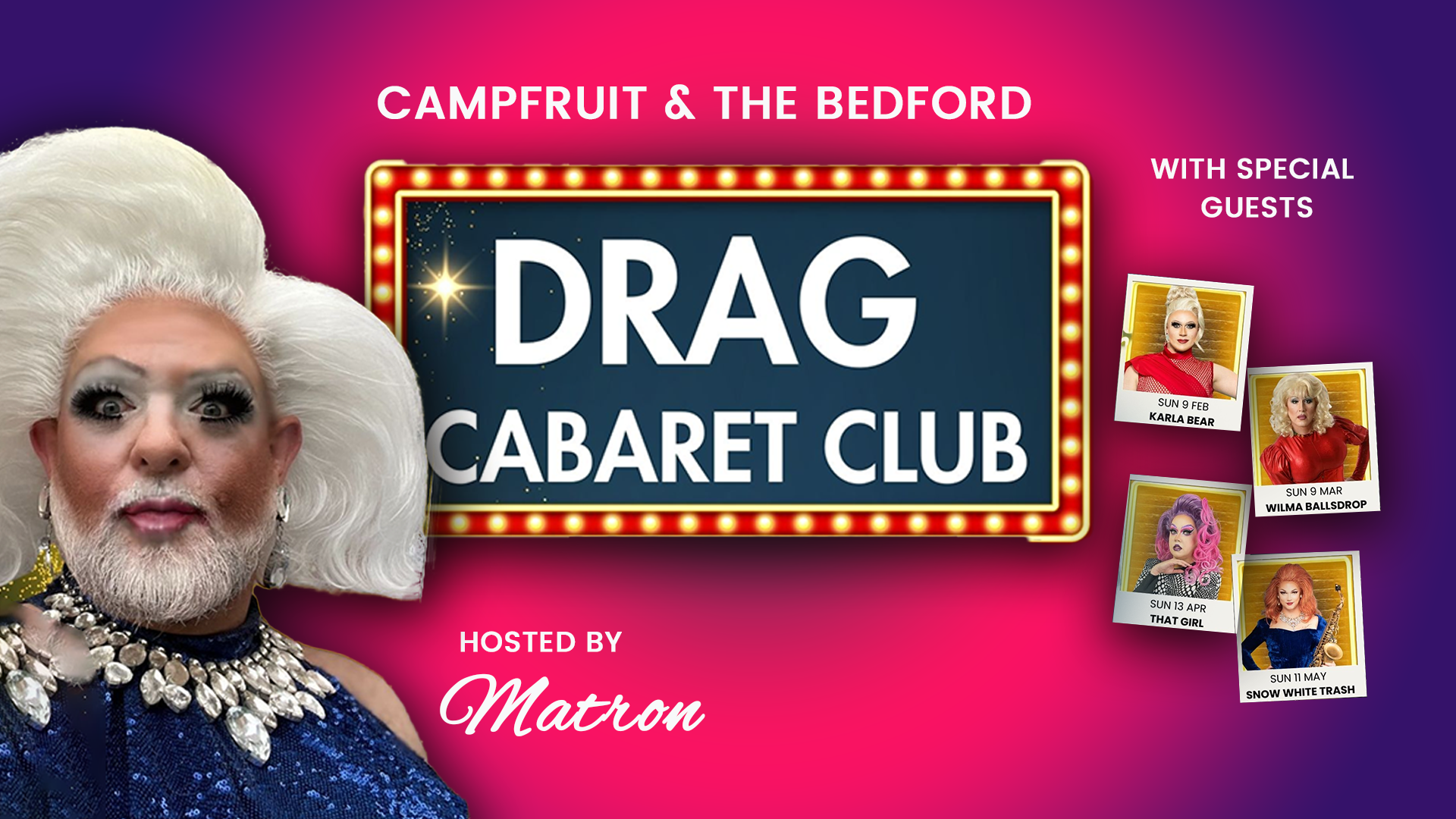
The audience loved it. They thought it was part of the act. And to Mark, that’s a core lesson. “They don’t know what’s in the show and what’s not. So I like to keep it unpredictable.”
Drag is a responsibility
Mark doesn’t perform drag just to look stunning. He sees it as care work. As community work. As legacy.
“Drag queens are superheroes,” he says. “We’re called to speak for those who can’t speak for themselves. You can be funny and still call out injustice. You don’t have to make everything political, but you do have to care.”
He credits his drag mother, the late Tony Page, with teaching him that. “Before a show, he would put on his wig, look in the mirror and say, ‘Now you remember me, don’t you?’ I still do that. That’s when Matron arrives.”
He also draws inspiration from South African drag satirist Peter Dirk Uys, whose character Evita challenged apartheid through humour. “Evita could say what no one else could,” he says. “That kind of bravery shaped me.”
Queer faith, proudly held
Mark grew up Catholic. He still has faith. He also wears lashes and lipstick. For many, those things don’t go together. For Mark, they always have.
“It’s what’s in your heart, not just what’s in the church,” he says. “You have to be confident and own that not everyone will understand. But surround yourself with people who will.”
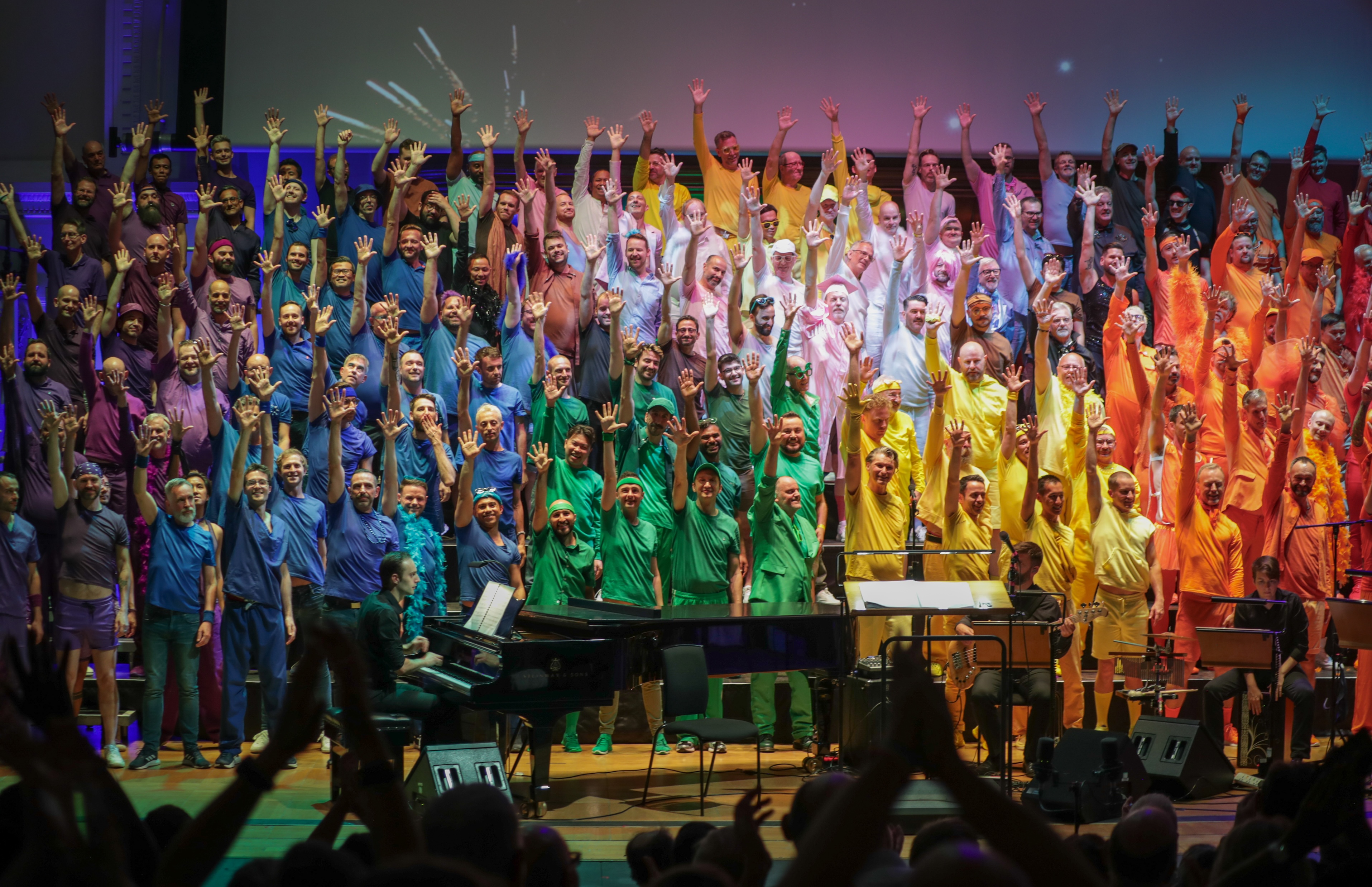
London queens and global stories
London’s drag scene has history, and Mark carries that with pride. He recalls his drag mother working at The Black Cap in Camden in the 70s and 80s. “That era shaped what we do today. And I think a lot of queens now still understand where we’ve come from.”
He gives a shoutout to That Girl, a fellow performer and novelist. “She sings, dances, writes, performs. She’s smart and fearless. I hate it,” he jokes. “But it’s inspiring.”
What makes a great act
Mark has strong views on what he looks for in a Camp Fruit guest. "I want Titans," he says firmly. "Artists who can stand on stage and hold people's attention for a full 45 minutes. Take a break, come back, and do it again. Make them laugh, make them cry, teach them something, make them feel something. That’s real talent."
He smiles, then adds, “I always ask about their background. A lot of the queens I’ve worked with have studied performing arts, musical theatre, even hold master’s degrees. These are not just boys in dresses. These are trained, committed performers. They deserve our respect.”
He adds, “Drag is not crowd control. It’s storytelling. And if you give someone the space to really perform, they’ll move you.”
Advice to newcomers
When asked what advice he’d give to a new drag artist or someone entering the queer event world, Mark chuckles. “Never let the facts get in the way of a good story,” he says with a wink. “I’m not telling people to lie, but sometimes the myth is better than the mess.”
Then his tone softens. “The best advice I ever got was from my Auntie Alice. I did a terrible show once , died on my ass. She told me, ‘Every show is just one more rehearsal.’ I’ve held on to that ever since. You try, you fail, you do it again. You always get better.”
The pillars that keep him going
When life gets heavy, Mark returns to what he calls his pillars. “My drag. My dog Rothko. My faith. My work. My community,” he says, counting them on his fingers.
“My drag keeps me expressive. Rothko, my American cocker spaniel, keeps me grounded. Faith gives me quiet clarity. Community reminds me I’m not alone.”
He pauses, then adds, “And I love my day job too , it keeps me in the style to which I’ve become accustomed.”
He’s also a proud member of the London Gay Men’s Chorus. “That chorus has taught me so much. How to listen, how to build harmony together. It completely changed the way I approach performance.”
If Matron had a cocktail
Mark likes to keep things playful. If Matron had a cocktail? “Definitely gin. Something classic, but with a twist you didn’t expect. Like Matron herself.”
And a superpower? “Flight. So I can show up, cause a little trouble, and be fabulous in every room.”
Representation, but deeper
When it comes to queer storytelling, Mark believes we’re ready for more. “Yes, the coming out stories matter. The HIV stories matter. But we’ve also earned space for joy. For everyday life. For nuance.”
That’s why he loved In From the Side. “It’s a rugby movie with gay men, and it’s not a crisis. They’re just living. I thought , finally, a story where it works.”
He pauses, then grins. “Of course I watched a rugby film. All those lovely men in very short shorts. But beyond that, it really meant something. It said , you can belong, and be yourself, and nothing has to break for it to be real.”
He laughs remembering it. “Of course I watched a rugby movie. Have you seen those shorts?”
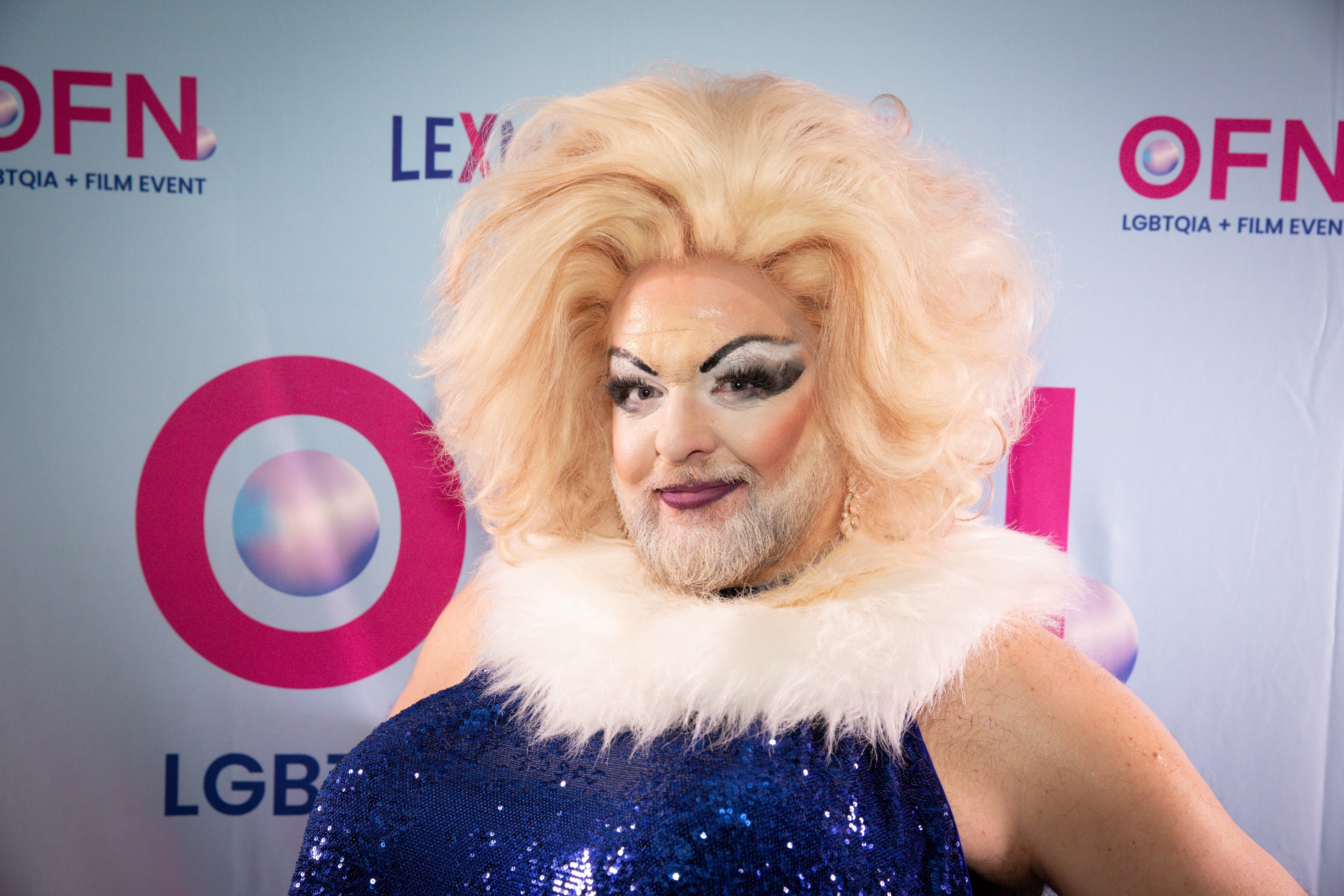
Pride and consent
Pride, to Mark, is not just a parade. It’s a reminder. “People say we’ve got what we wanted. But look at the world , rights can be taken away. Pride is about protecting what we have and speaking up for those who can’t.”
For him, it’s local and global. “In London, we march for those who can’t. Our pride has to mean something outside of ourselves.”
And always, he brings it back to consent. “Drag is not consent. Just because I look fabulous doesn’t mean you get to touch me. This is my own ass, thank you very much. My drag is not your invitation.”
He laughs, remembering bear festivals. “Walking topless does not mean you can tweak my nipples. You can turn the button, but the picture doesn’t get any better.”
Then he turns serious again. “Consent is sexy. It’s about respect , for yourself, and everyone else.”
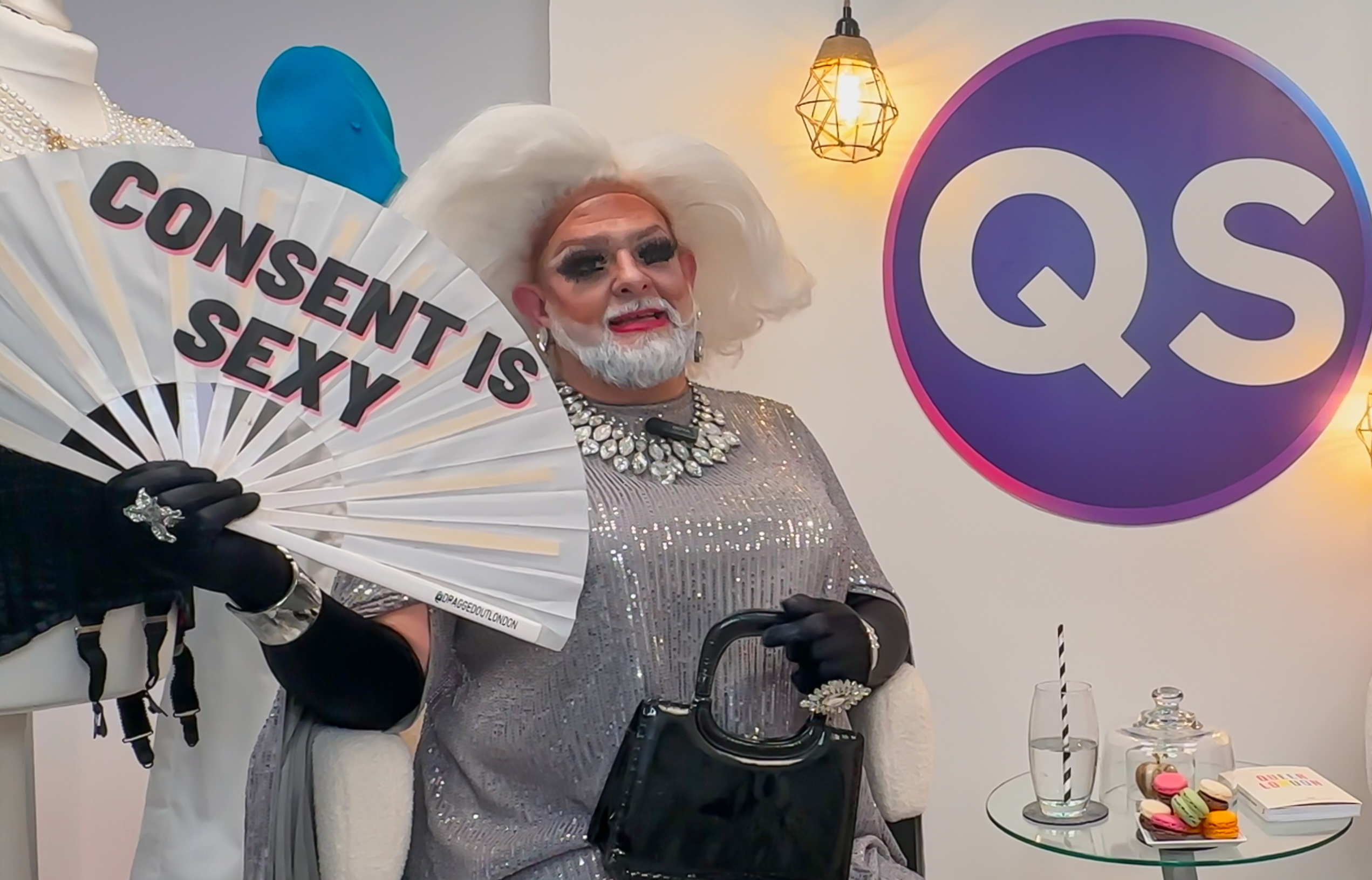
He shares a story about bear festivals and men walking around topless. “That doesn’t mean you get to tweak my nipples. You can turn the button, but the picture doesn’t get any better.”
Final bows
Before we part ways, Mark leaves us with one last story. His mother once told him to always carry a small handbag. “Just big enough to hold a brick. In case you need to defend yourself. Or someone else.”
That’s Matron. The auntie who brings care and comedy. The queen who builds tables, not just stands on them. The drag artist who reminds us that community is not just about being seen. It’s about being held.
And yes. In her bag, just in case. A brick.
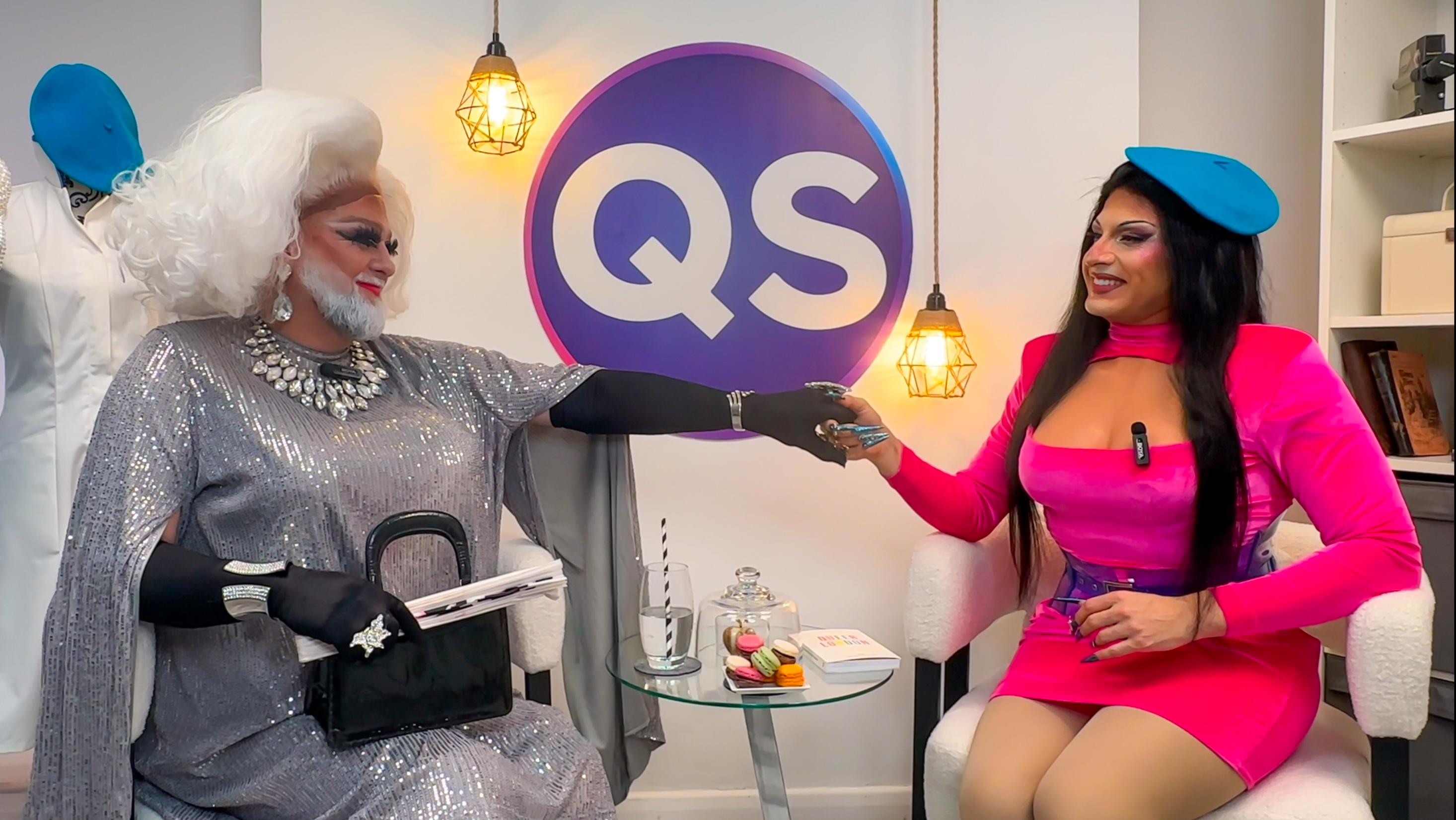

Get weekly updates
.png)
Join Our Newsletter
Get a weekly selection of curated articles from our editorial team.

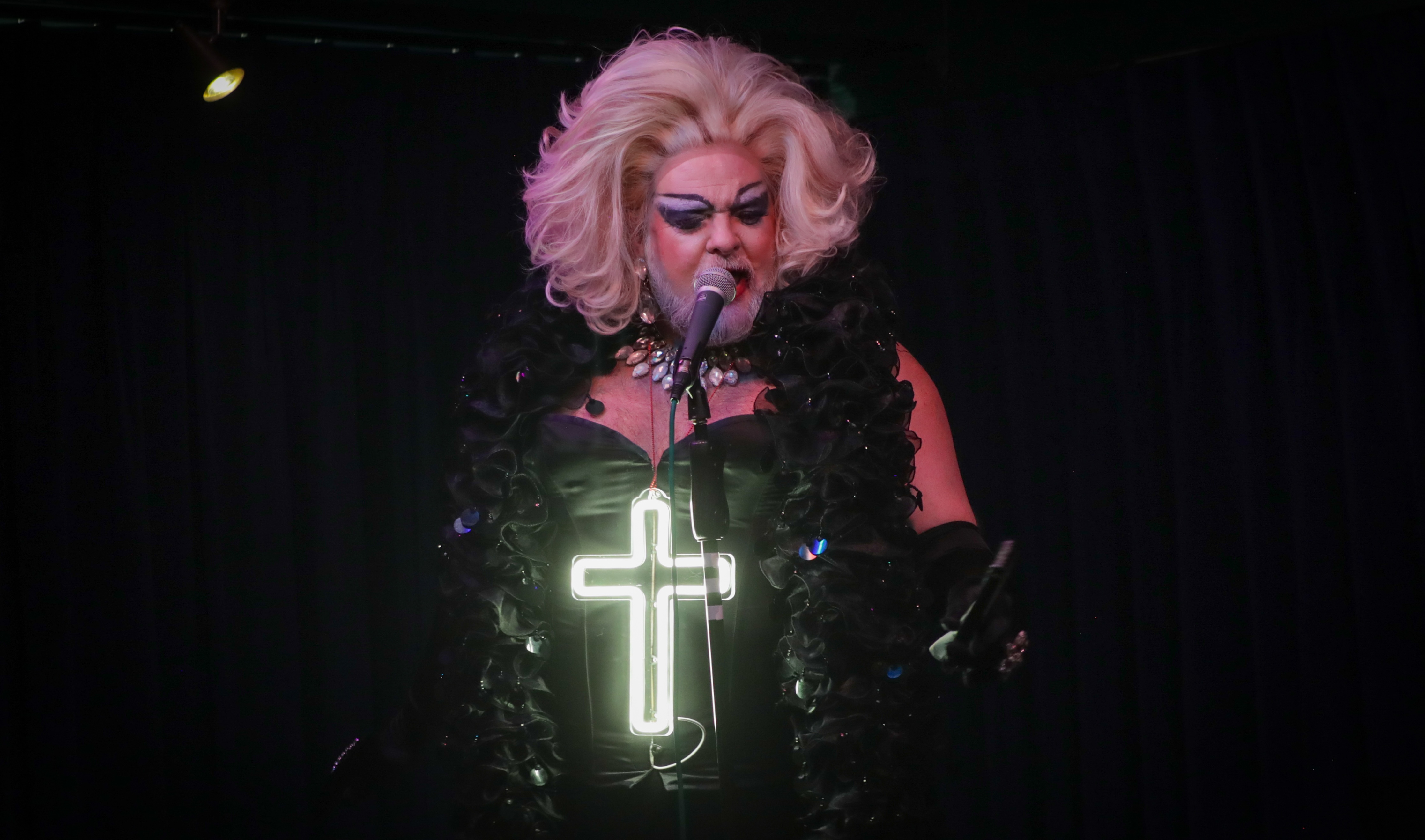



.svg)


